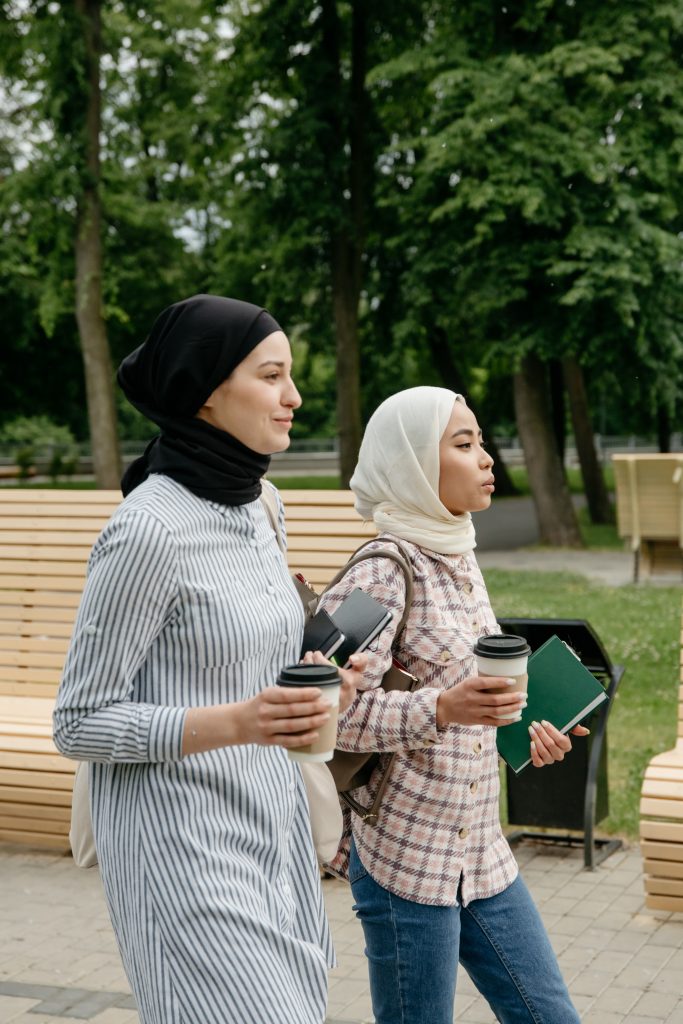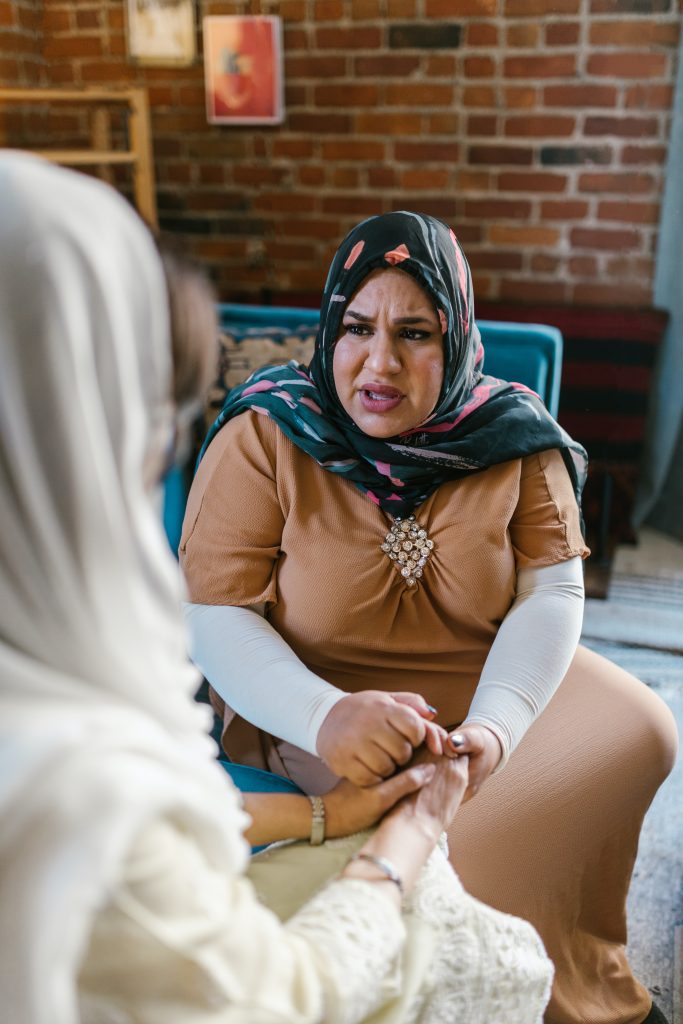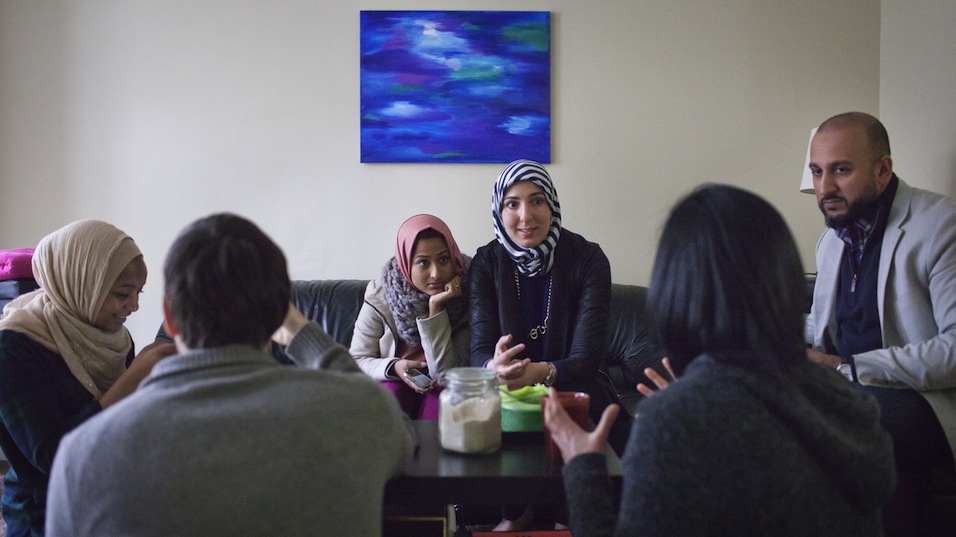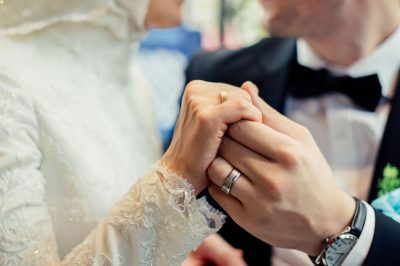“Did you hear what Ustadha Abidah said, Nura?” Rachel asked her friend while they were walking out of the masjid. “Actually, our parents owe us a right of consultation – shura – on our marriage decisions and plans.”
“Yeah, Rachel, I’ve heard it as well,” sighed Nura. “But for me, it is not that simple,” she continued.
“I was raised in a Muslim household, and my parents made it very clear to me who I could marry and who I could not. And Michael, a non-Muslim, is totally out of question for them.“
Nura kicked the pebbles on the asphalt as they made their way to the parking lot.

“Yes, they want for me a husband who is a doctor, but they care less about his expertise and more about his origin,” she said, shaking her head in disagreement.
“They want someone from their hometown. They have already contacted some family members; I recently caught my father talking to his cousin on the phone.”
“I know, sis, it is tough,” Rachel looked at her friend with compassion.
“But just because my parents are non-Muslims does not mean that I have complete freedom of choice,” she said, nodding, recalling how many times she had long fights with her parents when she decided to convert to Islam.
They were furious. Since then, they have seized every opportunity to prove her wrong and keep her away from Islam and Muslims.
“The issue isn’t about Islam; it’s about culture,” said Rachel.
“As Ustadha Abidah explained, shura—consultation—is part of the Islamic tradition. Parents need to hear their children and respect their choices while guiding them according to Islam, including their marriage choices.”
“So, have you tried to speak to them about Uthman?” asked Nura, challenging her friend.
Rachel’s expression turned gloomy. Her classmate Uthman was the one who first introduced Islam to her. It all began with a conversation during last Ramadan when Uthman refused to join for a coffee because he was fasting.
It was he who gave her a Quran for Eid al-Adha a couple of weeks later. And that changed her life forever.
She eventually converted to Islam almost a year ago, and their formal relationship has grown more serious since then. Until one day, Uthman said he wanted to talk to their parents about marrying her.
“Yes, I have tried, and not only once,” replied Rachel. “They don’t want to hear anything about it.”
“They’re still hoping that one day I’ll forget about it all this and return to being their Rachel, the “real Rachel,” smiled sarcastically.
“However, they admit that I am much kinder and more peaceful now that I practice my faith,” she added bitterly.
“I think you should not give up. You would be a wonderful match with Uthman,” smiled Nura at her friend. “I can feel a spark between you both very strong.”
“And so do I when you talk to Michael,” chuckled Nura. They arrived at her car.
“You should not give up either. Especially since your parents are Muslims, they are supposed to follow Islam first and not their culture.”
“You are right,” sighed Nura, as she got into her car. “Michael appears to be the right one for me. And he is ready to accept Islam. I will give it another try this afternoon, in sha Allah.
“In sha Allah. I’ll talk to you later,” waved Rachel to her friend and walked awa
***
Culture and Islam; Islam and culture… Nura was lost in thoughts as she headed home.
Her mother always becomes so emotional when she talks about her marriage plans. For her family, being Muslim means being South Asian, with all the traditions and customs.
And when Nura reminds her of the following words from the Prophet, (peace be upon him):
“All mankind is from Adam and Eve, an Arab has no superiority over a non-Arab nor a non-Arab has any superiority over an Arab; also a White has no superiority over a Black nor a Black has any superiority over a White except by piety and good action,”
her mother interrupts her with another quote about the duty to obey one’s parents and about the punishment of hellfire for a disobedient child.
Then there’s her father; he can only talk about compromises and promises he made here and there.
He even threatened her the other day, swearing to exclude her unless she agreed to marry his cousin’s son—a doctor, of course—”What else do I need for happiness?” wondered Nura.
“But I have one life, and I have the right to say no to them,” she said to herself, looking for her keys in her bag as she arrived at the front door. “They need to consider my opinion too.”
“And if they really want nothing else but to see me happy and safe, Michael will also be a doctor soon, and he is one of the best aspirants in the class.”
“Salam alaikom, dear! I have very good news for you,” her mother said as she rushed to open the door, a big smile on her face.
“Wa alaikom salam, mom,” Nura gazed at her mother. She started to have a very strange feeling. “What happened?”
“Do you remember Ayaan? He arrives with his parents on the weekend to perform the engagement ceremony.”
“Wait, what?” shouted Nura in shock. Her heart began to pound, and she felt as if she couldn’t breathe any longer. “I told you already that I do not want to marry Ayaan! You cannot force me to do that!”
“Ya Allah, ya Allah, Nura, do you want to kill your mother? I won’t survive if you say no to him,” she said, suppressing her tears.
“Your father’s honor, reputation, his promise to Abu Ayaan—all the sacrifices we have made for your future—and you just come and say no? Is this how you want to pay us for giving you happiness?”

“Mom, it’s not like that. Of course, I am grateful, but I do have the right to decide who to marry. And I cannot imagine my life with Ayaan,” she added despondently.
“We’ve never even met face-to-face. Do you remember when I talked to him online? It’s been nothing—not a single feeling that tells me I should marry him. And with Michael…”
“Michael? Do you still think about him? I am sure he is the reason why you do not have your heart in the right place. And he is not even a Muslim!” exclaimed Nuras’s mother.
“He is ready to convert and has been learning about Islam for a while…”
“Ready to convert?” interrupted her mother. “What does this mean? He will never be like us, ever.”
“He does not have to be like “us.” He just has to be a good Muslim, nothing else,” replied Nura firmly, but her voice started shaking.
“And we understand each other and have many things in common. He grew up here, and, by the way, he is a doctor, so my future is also secure, in sha Allah.”
“Nura, stop it now. This marriage will not take place with someone who is unfamiliar with our traditions. You will see— he will separate you from your family! He is not one of us, whether he is a good Muslim or not.”
“No but…” Nura suddenly felt immense desperation and powerlessness. She was powerless to make decisions about her own life. “No one listens to me and cares for my needs,” she thought, as tears welled up from her eyes.
“Forget it, Nura; you must obey us and not make us unhappy,” her mother said as she wrapped her arm around her shoulders and led her to the kitchen.
“You know what? This remains between me and you. I won’t say a word to your father, as he might suffer a heart attack, and that will be your fault, eh?
“Come and sit down; I have prepared your favorite dessert,” she told her daughter. “Later, we’ll go to auntie Mariam, she is waiting for us in her shop to check out some dresses for the ceremony. We have only 4 days left.”
***
To continue…
The post Marriage Decisions: Finding Balance Through Shura appeared first on About Islam.
source https://aboutislam.net/family-life/laying-foundations/marriage-decision-finding-balance-through-dialogue/



No comments:
Post a Comment